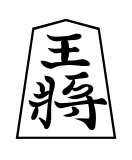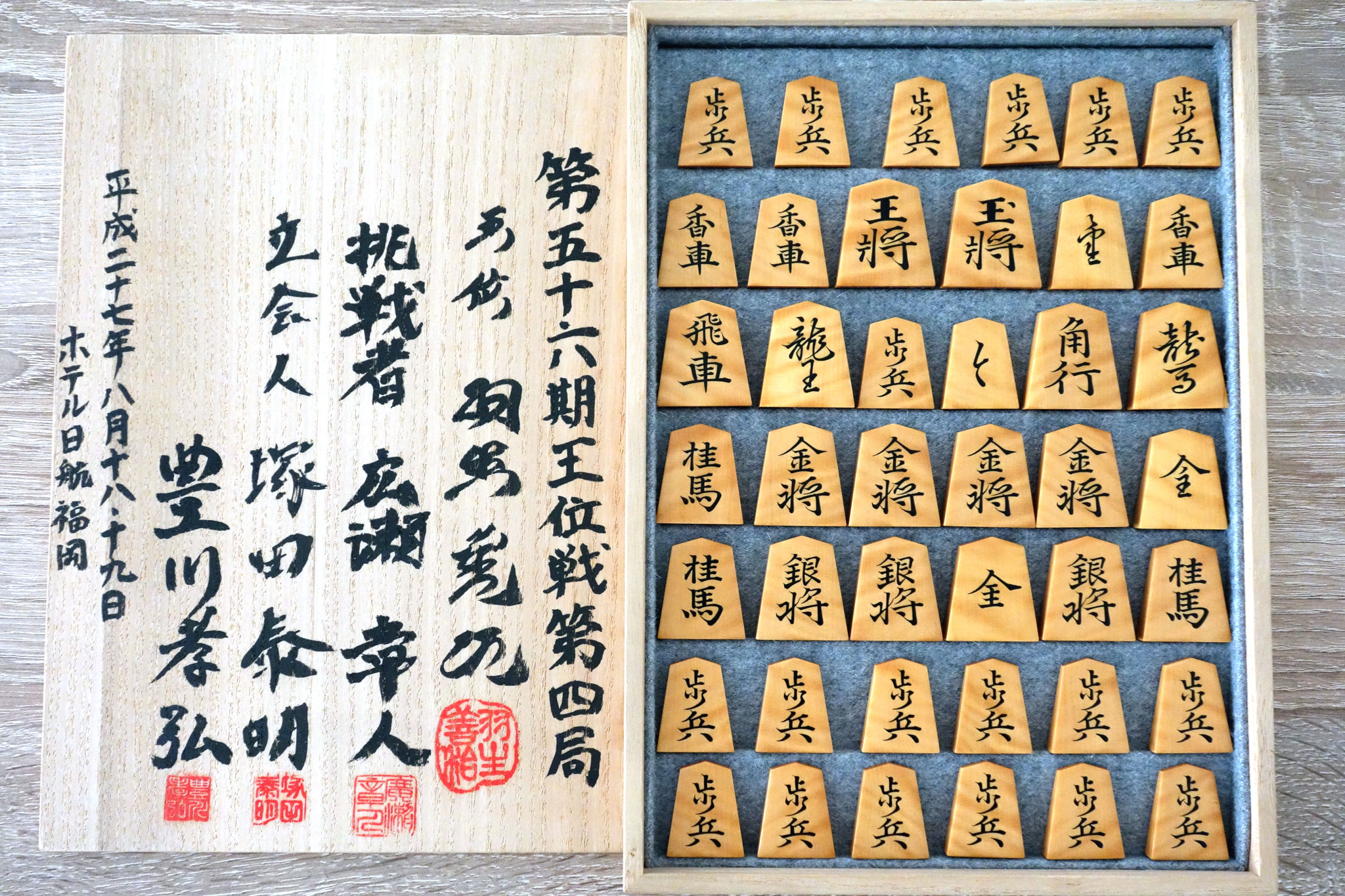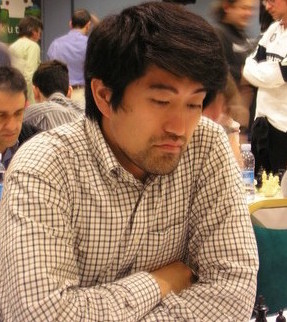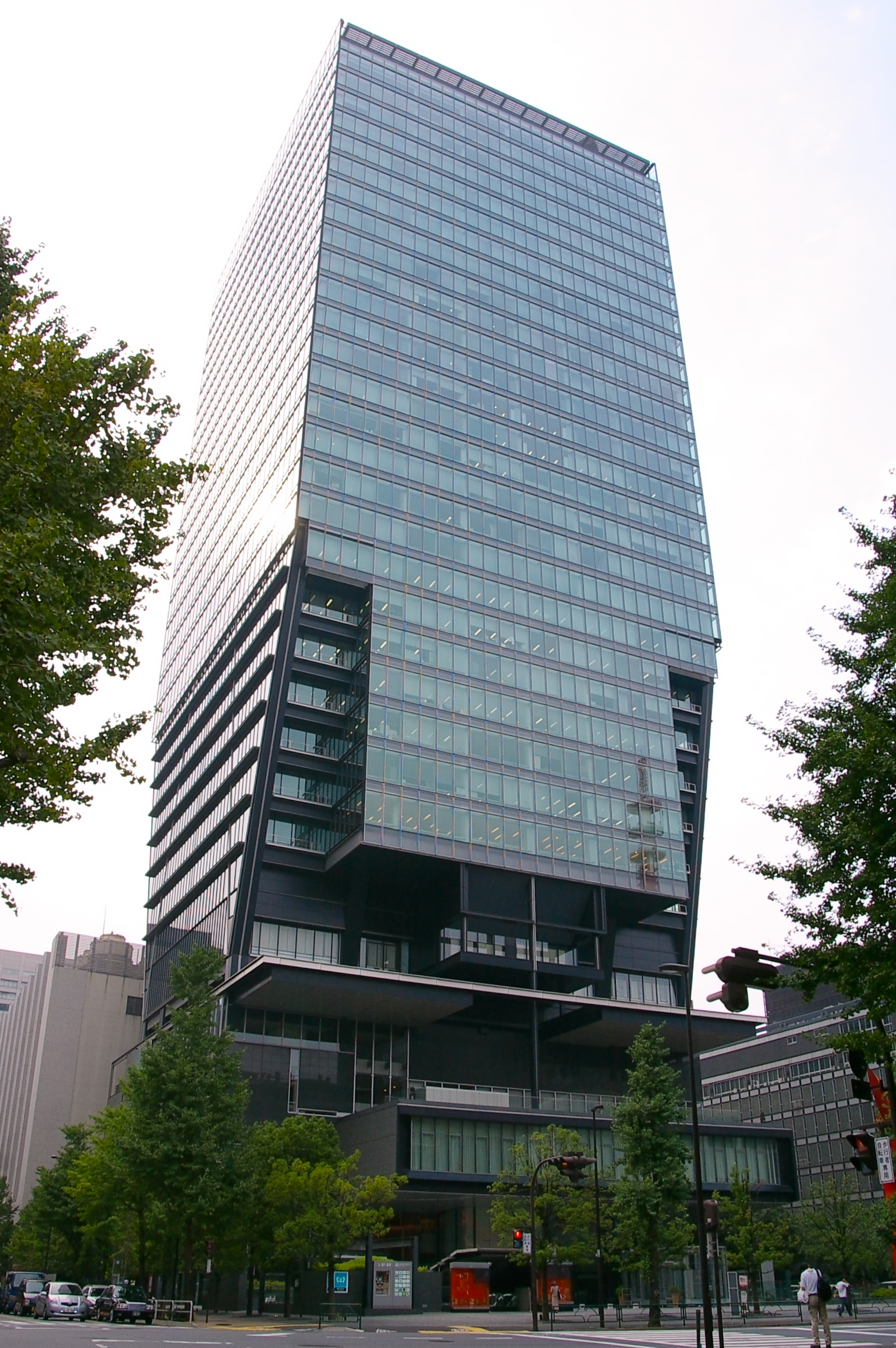|
Nobuyuki Yashiki
is a Japanese professional shogi player ranked 9-dan. He is a former Kisei title holder and also holds the professional shogi record for being the fastest to win a major title since turning professional.. Early life Yashiki was born in Sapporo on January 18, 1972. As a sixth-grade student, he finished third in the in 1983, but won the two years later as a junior high school eight-grade student in 1985. That same year, he entered the Japan Shogi Association's apprentice school at the rank of 6-kyū under the guidance of . Yashiki obtained the rank of 1-dan in March 1987 and was awarded full professional status and the rank of 4-dan in October 1988. Shogi professional Yashiki's first appearance came in November 1989 when he challenged Makoto Nakahara for the 55th Kisei title. Although Yashiki lost the match 3 games to 2, he appearance made him at age 17 years 11 months the youngest player ever to challenge for a major title at that time as well as the fastest, a one year 2 ... [...More Info...] [...Related Items...] OR: [Wikipedia] [Google] [Baidu] |
Sapporo
( ain, サッ・ポロ・ペッ, Satporopet, lit=Dry, Great River) is a city in Japan. It is the largest city north of Tokyo and the largest city on Hokkaido, the northernmost main island of the country. It ranks as the fifth most populous city in Japan. It is the capital city of Hokkaido Prefecture and Ishikari Subprefecture. Sapporo lies in the southwest of Hokkaido, within the alluvial fan of the Toyohira River, which is a tributary stream of the Ishikari. It is considered the cultural, economic, and political center of Hokkaido. As with most of Hokkaido, the Sapporo area was settled by the indigenous Ainu people, beginning over 15,000 years ago. Starting in the late 19th century, Sapporo saw increasing settlement by Yamato migrants. Sapporo hosted the 1972 Winter Olympics, the first Winter Olympics ever held in Asia, and the second Olympic games held in Japan after the 1964 Summer Olympics. Sapporo is currently bidding for the 2030 Winter Olympics. The Sapporo Dome host ... [...More Info...] [...Related Items...] OR: [Wikipedia] [Google] [Baidu] |
Abema TV
Abema (, stylized as ABEMA) is a Japanese live TV streaming website owned by the entertainment company, AbemaTV, Inc. that provides over-the-top media services to customers in Japan. The website primarily acts as an online television network, with multiple channels including news, sports, entertainment, anime and more. Users can watch most channels for free with the option to become a premium member, allowing them to view past programs on demand. Abema is owned by AbemaTV, Inc., which itself is 55.2% owned by CyberAgent and 36.8% owned by TV Asahi, with the remaining ownership by various other companies, most of them in the media and entertainment industry. In 2022, Abema broadcast all 64 matches of 2022 FIFA World Cup. List of channels Other channels These channels run on an inconsistent schedule * Sports Live - Live sports competitions such as the premier league * Shogi Live - Live shogi competitions * Mahjong Live - Live Mahjong competitions * UFC - Live UFC matches and ... [...More Info...] [...Related Items...] OR: [Wikipedia] [Google] [Baidu] |
Professional Shogi Players
A professional shogi player (将棋棋士 ''shōgi kishi'' or プロ棋士 ''puro kishi'' "professional player") is a shogi player who is usually a member of a professional guild of shogi players. There are two categories of professional players: regular professional and women's professional. All regular professional shogi players are members of the Japan Shogi Association (JSA). However, only regular professional players, who are all male, are considered to be full-fledged members. Women's professional players belong to groups distinct from regular professional players. In Japanese, the term 棋士 ''kishi'' only refers to regular professional players to the exclusion of women's professionals, who are termed 女流棋士 ''joryū kishi.'' History During the Edo period (1603-1868), shogi followed an iemoto system centered around three families (schools): the , the and the . Titles such as Meijin were hereditary and could only be held by members of these three families. These ... [...More Info...] [...Related Items...] OR: [Wikipedia] [Google] [Baidu] |
Living People
Related categories * :Year of birth missing (living people) / :Year of birth unknown * :Date of birth missing (living people) / :Date of birth unknown * :Place of birth missing (living people) / :Place of birth unknown * :Year of death missing / :Year of death unknown * :Date of death missing / :Date of death unknown * :Place of death missing / :Place of death unknown * :Missing middle or first names See also * :Dead people * :Template:L, which generates this category or death years, and birth year and sort keys. : {{DEFAULTSORT:Living people 21st-century people People by status ... [...More Info...] [...Related Items...] OR: [Wikipedia] [Google] [Baidu] |
Japanese Shogi Players
Japanese may refer to: * Something from or related to Japan, an island country in East Asia * Japanese language, spoken mainly in Japan * Japanese people, the ethnic group that identifies with Japan through ancestry or culture ** Japanese diaspora, Japanese emigrants and their descendants around the world * Japanese citizens, nationals of Japan under Japanese nationality law ** Foreign-born Japanese, naturalized citizens of Japan * Japanese writing system, consisting of kanji and kana * Japanese cuisine, the food and food culture of Japan See also * List of Japanese people * * Japonica (other) * Japonicum * Japonicus * Japanese studies Japanese studies (Japanese: ) or Japan studies (sometimes Japanology in Europe), is a sub-field of area studies or East Asian studies involved in social sciences and humanities research on Japan. It incorporates fields such as the study of Japanese ... {{disambiguation Language and nationality disambiguation pages ... [...More Info...] [...Related Items...] OR: [Wikipedia] [Google] [Baidu] |
Ōshō (shogi)
is one of the eight titles in Japanese professional shogi. The tournament is co-sponsored by Sports Nippon and the Mainichi Shimbun with additional support received from the . The word also refers to the piece called the "King" in shogi. History The tournament was first held in 1950 as a non-title tournament. The following year in 1951, it was elevated to major title status as the third major title along with the Meijin and Tenth Dan (later Ryūō) title tournaments. Format The tournament is open to all and takes place in four stages. The first and second preliminary rounds consist of multiple single-elimination tournaments in which the first round winners advance to compete against each other in the second round. The three winners of the second round tournaments then advance to a round-robin league called the "" along with four seeded players. The winner of the challenger league then advances to a best-of-seven championship match against the reigning Ōshō title holder. ... [...More Info...] [...Related Items...] OR: [Wikipedia] [Google] [Baidu] |
Chikara Akutsu
is a Japanese professional shogi player ranked 8-dan. Promotion history The promotion history for Akutsu is as follows: * 6-kyū is a Japanese term used in modern martial arts as well as in tea ceremony, flower arranging, Go, shogi, academic tests and other similar activities to designate various grades, levels or degrees of proficiency or experience. In Mandarin Chi ...: 1994 * 1-dan: 1997 * 4-dan: October 1, 1999 * 5-dan: July 2, 2004 * 6-dan: August 3, 2007 * 7-dan: April 1, 2009 * 8-dan: February 13, 2014 Titles and other championships Although Akutsu has yet to appear in a major title match, he has won two non-major-title championships during his career: the (2008) and the (2009). Awards and honors Akutsu received the Japan Shogi Association Annual Shogi Awards for "Best New Player" in 2004, "Best Winning Percentage" in 2006, and "Most Consecutive Games Won" award in 2009. Year-end prize money and game fee ranking Akutsu has finished in the "Top 10" of the J ... [...More Info...] [...Related Items...] OR: [Wikipedia] [Google] [Baidu] |
Yoshiharu Habu
is a professional shogi player and a chess FIDE Master. His master is Tatsuya Futakami. He is the only person to simultaneously hold seven major professional shogi titles at the same time and is also the only person to qualify as a lifetime title holder for seven major titles. In January 2018, Habu became the first professional shogi player to be awarded Japan's People's Honour Award. Early life Yoshiharu Habu was born in Tokorozawa, Saitama in 1970 and moved to Hachioji, Tokyo before entering kindergarten. Habu first encountered shogi in his first year of elementary school, when his classmates taught him how the shogi pieces move. He was so fascinated by the game that his mother entered him in a shogi tournament held at the Hachioji Shogi Club in the summer of 1978. Although Habu was eliminated during the preliminary rounds with a record of 1 win and 2 losses, his parents took him to the shogi club every weekend from October 1978. Habu improved so rapidly that he was promote ... [...More Info...] [...Related Items...] OR: [Wikipedia] [Google] [Baidu] |
Ōi (shogi)
is one of the eight titles in Japanese professional shogi. The word means "the king's rank" (王 ''ō'' 'king' + 位 ''i'' 'rank, position'). The annual tournament started in 1960 sponsored by a group of local newspapers which has consisted of Shimbun Sansha Rengō (Three-Newspaper Association). With the addition of Ōi, there were four major shogi titles along with Meijin, Ninth Dan (Ryūō), and Ōshō. The challenger for the title is determined by three-step preliminary round that comprises 1st heat, league competition and final playoff. Top eight players in 1st heat and top four players of previous year are divided into two six-player leagues. Top one of each league advances to final playoff, and the winner of one-game match becomes the challenger. The player that wins four games out of seven first in the championship will become the new Ōi title holder. Each championship games assign players a six-hour playtime during two days. Lifetime Ōi is the title awarded to a ... [...More Info...] [...Related Items...] OR: [Wikipedia] [Google] [Baidu] |
Toshiyuki Moriuchi
is a Japanese professional shogi player, ranked 9-dan. He is a Lifetime Meijin who won the title eight times, and also a former Ryūō, Kiō and Ōshō title holder. He is also a former senior managing director of the Japan Shogi Association. Early life Moriuchi was born on October 10, 1970, in Yokohama. His grandfather was shogi professional , who died about ten years before Moriuchi was born. When Moriuchi was young and would visit his grandmother's house, she would show him old issues of '' Shogi World'' that she had kept, and this is when Moriuchi first became interested in shogi. Moriuchi started playing in shogi tournaments as an elementary school student and it was there that his rivalry with Yoshiharu Habu began. Habu lived in neighboring Tokyo and was the same age, so the two often participated in the same tournaments. Moriuchi even went to watch Habu win a tournament whose entry was limited to Tokyo residents only. The following year, Moriuchi defeated Habu in the fi ... [...More Info...] [...Related Items...] OR: [Wikipedia] [Google] [Baidu] |
Sankei Shimbun
The (short for ) is a daily newspaper in Japan published by the It has the seventh-highest circulation for regional newspapers in Japan. Among Japanese newspapers, the circulation is second only to ''Yomiuri Shimbun'', Seikyo Shimbun, ''Asahi Shimbun'', ''Chunichi Shimbun'', ''Mainichi Shimbun'', ''the Nikkei'', Nikkan Gendai, and Tokyo Sports. This newspaper is not actually a national newspaper, but a block newspaper whose publishing area is Kansai and Kanto. However, it was classified as a "national newspaper" by the reverse course policy of the business world (Keidanren). Corporate profile The ''Sankei Shimbun'' is part of the Fujisankei Communications Group and is 40% owned by Fuji Media Holdings. The company is also the owner of Osaka Broadcasting Corporation (OBC, Radio Osaka). History The ''Sankei Shimbun'' was created by the merger of two older newspapers: ''Jiji News'' and ''Nihon Kogyō Shimbun''. ''Jiji News'' was founded in 1882 by author, translator, and jour ... [...More Info...] [...Related Items...] OR: [Wikipedia] [Google] [Baidu] |
Hiroyuki Miura (shogi)
is a Japanese professional shogi player, ranked 9-dan. He is a former Kisei title holder and became the first active Class A professional to lose to a computer when he lost to the GPS Shogi program in April 2013. In October 2016, he was falsely accused of cheating in the 29th Ryūō challenger controversy, which resulted in him losing the chance to play for the Ryūō title. A third-party investigative panel was convened and eventually cleared Miura of all charges. The panel's findings led to the resignation of the Japan Shogi Association's president as well as the dismissal of several board members. Early life Miura was born in Takasaki, Gunma on February 13, 1974. In June 1987, he entered the Japan Shogi Association's apprentice school at the rank of 6-kyū as a protegee of shogi professional . Miura achieved the rank of 1-dan in 1989 and obtained professional status and the rank of 4-dan in October 1992. Shogi professional Miura's first appearance in a major title match ... [...More Info...] [...Related Items...] OR: [Wikipedia] [Google] [Baidu] |





